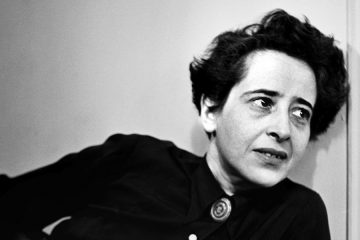A school to which I’m applying has an option to submit a Personal History Statement to discuss how my personal background motivates me to pursue graduate studies in philosophy. If I told this story fully I think that it would take me more than fifty pages of writing, but the statement is limited to two pages (double-spaced)… I’d like to share this here because it touches on a very important period of and development in my life.
In April of my third year at Princeton, I suffered a traumatic experience. While the details of the incident are now irrelevant, the aftermath set me on a surprising course to finding community among people with backgrounds and worldviews so different from my own. This experience brought me much more than healing: cognitive growth—questions about what it means to hold beliefs, insights into cognition, and an intense desire to bring these insights into my plans for future philosophical study.
That semester was pivotal. My best friend had gone abroad—I didn’t keep up our social habits without her; I basically decided to set up camp in the philosophy library instead to cultivate my interest in philosophy, something I was growing to deeply love. This led me to reconnect with a friend who had also installed herself there, a friend I had not spoken to in two years; after some months of late-night teas, we were shocked to discover that my roommate happened to be her best friend. Both these women were raised religiously and were together converting to Catholicism with Princeton’s Catholic ministry. The trauma occurred amidst these shifts and had immediate consequences to which I had to adjust: I could no longer sleep alone, the medications I had to take temporarily incapacitated me from every part of my life, and I was extremely unstable. These friends took turns sleeping beside me every single night and suggested as free therapy sessions going to mass and speaking with the priest. While the frequent references to a God I do not believe in were difficult for me to understand, the Catholic community accepted me, I attended daily mass for many months, and I continued to attend on Sundays for a year after my recuperation—it all provided me a space for calm meditation and healing.
This narrative may sound rosy, but a significant cognitive barrier nearly prevented me from following this trajectory. I grew up in a non-religious Japanese family with a mixture of Confucian, Shinto and Buddhist values and a bias against organized religion; in a Protestant, Jewish or atheist community hostile to Catholicism; and in a political climate pointing out the many abuses of the church. I experienced cognitive dissonance accepting help from a group I had grown up associating with a notion of ‘evil’. Without my emotional turmoil and the love I felt from my two Catholic friends, I doubt I would ever have gone out of my way to experience Catholic activities. My non-Catholic friends became worried I might convert, and some of my LGBTQ+ friends passionately needed me to answer the question: “How can you even talk to them when you know they don’t believe in gay marriage?”[1]
Catholic friends also reacted strongly towards my spending a lot of time in their community. Some were initially suspicious of my motivations or thought of me as their opportunity to create a convert. Many, however, confided in me their painful experiences of being judged for their beliefs and expressed their appreciation of my repeated efforts to understand them and their religion, of my non-judgmental approach, and of my love for them despite not believing in their God and disagreeing strongly with some of their beliefs. They told me it was highly unusual to find a peer so respectful of and genuinely interested in their religious beliefs without any interest in conversion.
In hindsight, I am very grateful that everything happened as it did. Through it all, I gained two best friends who are proof to me of the importance of whole-heartedly considering alien perspectives; I experienced a thorough and systematic breakdown of my negative stereotypes of Catholics which prompted me to commit considerable cognitive work to break down biases I had or still have of others; and I experienced many, may I say, revelatory moments for my thoughts on epistemic responsibility. I have a deep, first-hand appreciation for the complexities of epistemic and moral requirements to hold beliefs and for the philosophical and real-life consequences of not upholding them. It propels me passionately forward to pursue answers to questions on these topics. Conversing with friends and mentors of many different backgrounds, I have concluded that there is no more meaningful nor more enjoyable way for me to spend the rest of my life than to produce philosophy on topics in epistemology and moral psychology. My fascination with differences of opinion, my earnest commitment to talk through them endlessly without personal biases, and my strengths in having a real dialogue with people who in real life hold beliefs different from my own will be invaluable as part of a philosophical community whose members come together with varying interests, experiences and positions.
[1] I have had many conversations trying to understand why some people think gay marriage is wrong; I now think I understand. However, I am prouder of having made some headway on the topic with people who typically would not budge on such a deep-seeded issue.
Here I want to thank my wonderful and thoughtful friends Oscar Mahoney, Sam Matzner, Merrick Anderson, Fabian Ruge, Hope Kean, Anna Leader, Melanie Berman, Sarah Gianakon, Ainsley Pullen, Ben Kemann, Olly Prato, Leon Beckert, and Felix Miller for varying degrees of substantive feedback in revising it. Some of these friends as well as the Catholic community at Princeton and my professors during those semesters I also want to express gratitude for being a significant part of the journey described. I feel extremely lucky to have the friends and mentors I have.



2 Comments
Steven · December 20, 2019 at 09:05
Hello Masako, I found your blog and started reading your posts. I found this to be a very thought-provoking statement, since I have also studied different religions and tried to get to know them more for a better understanding of the people who follow them. So it was quite interesting to hear your experience with this and I’d love to hear your opinion on two specific points you mention in your statement: 1) “How can you even talk to them when you know they don’t believe in gay marriage?” Do you think a disagreement on one fundamental issue like this makes agreeing on something else harder or impossible? And if so, should it make it harder to agree? 2) “the importance of whole-heartedly considering alien perspectives” Have you noticed a change in some of your own beliefs like for example the value of organized religion since you mentioned that as one of your original beliefs? Or do you simply include it as a new perspective, yet still choose to keep the beliefs you already had? … I hope you keep writing here, I certainly look forward to reading more of your posts since they really make me think. Cheers, Steven
mtoyoda · December 28, 2019 at 18:19
Hi Steven, Thanks so much for your comment and for reading my posts! 🙂 I’m glad you found this one thought-provoking–I hope you found some of my other posts to be so, as well. I find it very cool you’ve studied different religions and tried to get a better grasp of them and of those who follow them! It seems important to me to not deny others’ experiences or beliefs without at least investing considerable effort to understand them, and when one really understands another’s experiences and beliefs, I think oftentimes the sense to that other worldview becomes manifest in a way it had not been, before.
To address what you asked:
1. I think that disagreeing on a fundamental issue can make it much more difficult to agree on something else. If you are committed to believing that an opinion X is fundamentally wrong, stupid, disrespectful, etc. and you see person A hold opinion X, I think oftentimes you would be inclined to devalue person A’s opinion on other things, because it would be, I think, natural to assume that their lack of ability to discern the wrongness of opinion X would also seep into their forming other opinions Y & Z. “How could they think that!?” is a thought I think many people have towards others who disagree on some issues people find ‘obvious’, e.g. climate change, certain legal rights. In my experience, I have seen many people categorically dismiss the thoughts and opinions of a group who disagrees with them. Why they do this is understandable/explainable, but–I think–unjustified.
Another way in which disagreeing on one fundamental issue can make agreeing on something else harder is if someone is personally invested in the point of disagreement. To take the example from the text: for some people, being lesbian, gay, pansexual, etc. is central to their identity. As such, when there is a group of people who deny them certain rights (e.g. of marriage) on the basis of their identity, I think it becomes extremely tricky for the person whose identity is being denied, to listen to whatever else they (the group of people doing the denying) might have to say, because having their identity denied is often upsetting. I (personally) don’t blame these people who experience this for their lack of willingness to listen–when you feel personally attacked by others, I think it is very normal to have this sort of a (n emotionally-motivated) negative reaction.
On the other hand, I don’t think having this sort of a reaction is at all helpful for either group to further their understanding of the other. Personally, as part of the LGBTQ+ community in a loose way (not so central to the way I identify myself), I found it to be even more of an imperative for me to try to understand why my Catholic friends denied the importance of gay rights. When I disclosed my own personal orientation and lifestyle regarding many different matters to these friends, I think they found it easier to respect my different thoughts and ways of living precisely because I was so willing to listen to their perspectives without being offended by them in any way.
2) I think before this experience I would have leaned more atheist than agnostic; I grew up with a primarily STEM (Science Technology Engineering and Mathematics) background before attending Princeton, and my faith in science to explain everything there is to be explained in the world was quite strong. Having studied philosophy throughout my four years at Princeton and also as a post-graduate student, particularly some questions in Metaphysics and Philosophy of Science, as well as many arguments in favor of or against the existence of God because of my experience with my Catholic friends, I consider atheism to also be a religion (my own tentative 12.28.2019 definition for it: a system of beliefs that one turns to in order to explain the world around them and that further guides the way one behaves) and have become rather strongly agnostic!
Additionally, I used to almost exclusively associate organized religion with wars and political conflicts, interventions on the use of condoms that have contributed to the spread of AIDS in Africa, monetary abuses (e.g. indulgences), continued animosity more generally between groups whose interests would be better served by letting go of such animosities (in the way their religious doctrines would advise), etc. Now, I see a lot of value organized religion can have within smaller/local contexts. I see how beneficial it is for many people to have a tight-knit group of people they can always rely on/to have an amazing support network, etc. It is extremely good I think for many people for providing structure in their lives and provides a framework for acting well. I think that almost everyone who thinks a lot about the way they act and how they should act has a certain set of beliefs that they stick to when deciding how to act. Many non-religious people turn to different philosophical doctrines of their evaluative choosing for their set of beliefs e.g. Stoicism. In a way, I think they are ‘religious’, too.
In my personal experience, those (religious or non-religious) who don’t invest the time to form rigorous thoughts on these important matters have been the people I have watched hurt others the most through their actions. I think organized religion is one way in which you can make it more ‘normal’ for entire communities to bring thoughts on how one should or should not act to the forefront of people’s minds. While I think there are better and worse ways of getting to this same outcome, I now think organized religion is one very valid way–something I had not thought before my experience described in my post!
Hope this answers what you asked!
Masako
Comments are closed.